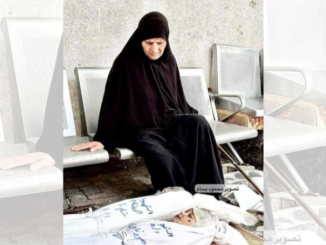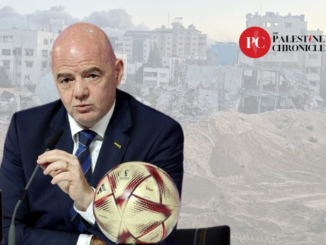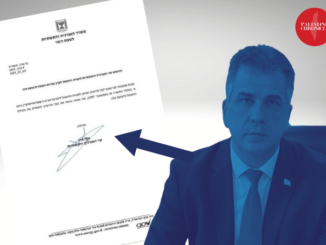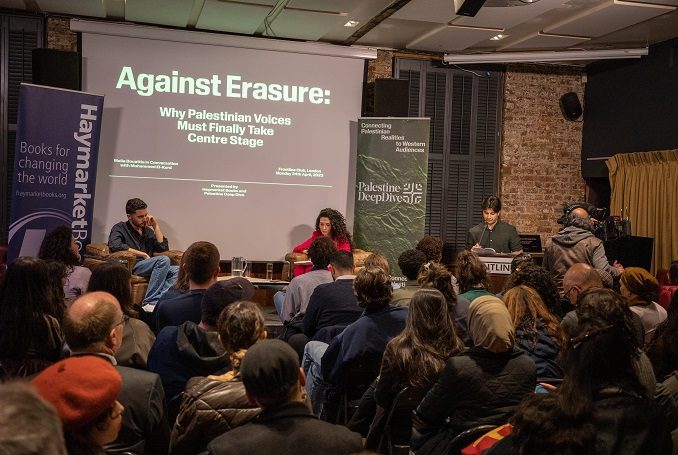
By Omar Aziz
Editor’s Note: Palestine Deep Dive (PDD) held its first in-person event in London this week, ‘Against Erasure: Why Palestinian Voices Must Finally Take Centre Stage.’
Collaborating with Haymarket Books, they hosted Palestinian poet, journalist and activist Moham-med El-Kurd in conversation with Malia Bouattia, the Opinion Editor of The New Arab. Their dis-cussion explored the need for a media landscape which no longer marginalizes and excludes Pales-tinians, but centers their voices, experiences and agency.
PDD’s Associate Director, Omar Aziz, preceded the conversation with a speech drawing attention to how media companies, politicians and even left-wing commentators in Britain have been complicit in collectively sidelining and silencing Palestinians in conversations where their inherent centrality should have been recognized and respected.
Why Palestinian Voices Must Finally Take Centre Stage
My name is Omar Aziz and I am the associate director of Palestine Deep Dive.
It’s great to see you all here tonight for this very special event. We’re so grateful to Mohammed and Malia for making the journey to the UK to speak with us this evening. And it’s such a privilege for us to be co-hosting this event with Haymarket Books.
Palestine Deep Dive is an independent media platform established in late 2019 to educate a growing audience concerned with Israel’s oppression of the Palestinian people.
I joined the small team in 2020, soon after touring Laila Hassan around the UK.
Laila is a Palestinian from Hebron in the occupied West Bank, who for years ran a women’s em-broidery collective in the old town, I am sure many of you have met her. Listening each night to her firsthand accounts of the everyday brutality of Israel’s occupation but also the acts of defiant re-sistance, often humorous, which preserved her dignity and agency – it became abundantly clear to me that it is these voices, Palestinian voices, that have been underrepresented in the media and urgently need to be heard now more than ever.
In the wake of last year’s horrific murder of Palestinian journalist Shireen Abu Akleh at the hands of the Israeli military, many commentators were quick to describe this courageous journalist as the voice of the voiceless. There aren’t words I can deliver tonight which will do justice to the life and legacy of Shireen Abu Akleh in the time I have.
But I would like to echo what was said on our show the day Shireen was murdered, these are the words of Dr Ramzy Baroud, whose vision and guidance has been so integral to all our work at Pal-estine Deep Dive.
“Palestinians are not voiceless, Shireen Abu Akleh was herself a Palestinian and was the voice of her people as opposed to the voice of the voiceless.”
“There will be many Shireen abu Akleh’s,” he continues, “they are all over Al-Aqsa, Jerusalem and Ramallah and Gaza – who will carry the torch and will continue with this legacy until the Palestini-an people receive their freedom and justice and at long last.”
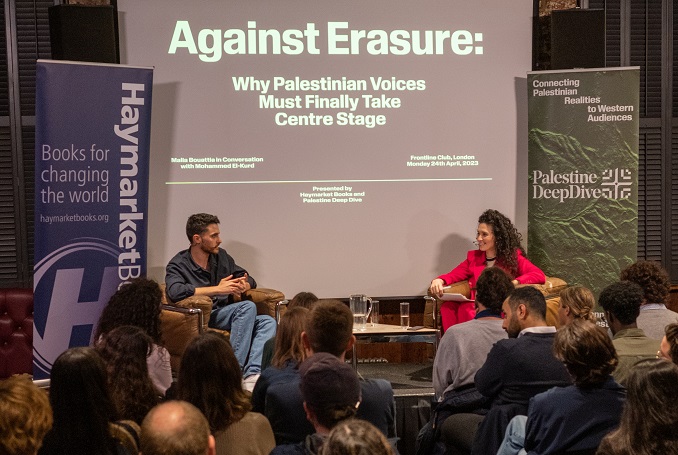
In fact, it has been us, western journalists, academics and so-called experts who have been complicit in the systematic marginalizing, sidelining and outright silencing of Palestinians for decades.
Just one example of the 2,490 opinion pieces about Palestinians in the New York Times published between 1970 and 2019, only 46 were written by Palestinians — an average of less than 2 percent.
In broad daylight right now, we see the advancement of Israel’s ethnic cleansing of the Palestinian people in their ancestral homeland. And the erasure of a people relies on dehumanizing and silencing them.
At Palestine Deep Dive we contend that as journalists, human rights experts and even as activists today, it is our obligation not to speak for or over Palestinians, but to make space for Palestinians to be heard in their own words.
Over the last couple of years, we have produced over 70 live YouTube shows, hosted by our director Mark Seddon, and one thing that occurred to me early on while setting up these shows is just how easy it is to do with today’s technology. For me, to sit behind a laptop in London, open a Zoom account, send a few emails and hey presto, we have a show.
Of course, the story is very different for our guests on the ground.
Take for instance, the first days of Israel’s May 2021 assaults on Gaza. We hosted a show with three young Palestinians, Mohammed El-Kurd and Budour Hassan speaking live from Jerusalem and Issam Adwan speaking live from Gaza. We opened space for Palestinians on the ground, to be united digitally across Israel’s forced fragmentation of Palestinian land, during imminent expulsion and bombardment, to speak to the world about what they are enduring and the wider context.
We did this, with one Zoom account, one laptop and a few emails. So, what excuse does a multimillion-pound international news station have, with teams of correspondents, producers and editors, to not be able to do the same? I’ll leave that question with you.
But it is not just the media which is failing to respect the centrality of Palestinian voices. We know too well our political elite are guilty of the same.
Just one example, but an important one, which highlights how Palestinians have been excluded from the discussion in this country about the nature of their own oppression – is seen in the confusion and fear around the word Zionism.
Even on the left, during Jeremy Corbyn’s leadership of the Labour Party, which enthused so many of us, some felt they had the authority to set the terms of the debate on what Zionism means, without consulting the world experts on Zionism today, the Palestinians. And we saw the consequences of this, with all four Labour candidates hoping to succeed Jeremy Corbyn in some way declaring their support for that ideology – the ideology at heart of Israel’s attempted erasure of the Palestinian people.
By calling for our colleagues to respect the centrality of Palestinian voices, we’re not asking for Palestine to be reduced to an identarian issue or for the tokenization of Palestinians, but to acknowledge and address the current inherent power imbalance which marginalizes the colonized and oppressed, preventing them from communicating their story to the rest of the world and as illustrated in Rafeef Ziadeh’s wonderful poem “We Teach Life Sir”, a power imbalance which forces Palestinians to feel they have to police their emotions in order to avoid fulfilling racist tropes.
Clearly there is much work to be done and ours is only just beginning.
I look forward to learning much more tonight from Malia and Mohammed on how we can all strengthen the flow of news from Palestine to western audiences and empower a new generation of Palestinian talent to lead from the front in their struggle for justice and liberation.
Check out our work at Palestine Deep Dive, we’re a new organization just get-ting started. We recently launched a new visual identity and website, and soon hope to expand our team and build a studio to stream from. Do come and have a chat after if you’d like to learn more about our work.
– Omar Aziz is Associate Director at Palestine Deep Dive. He contributed this article to The Palestine Chronicle.

